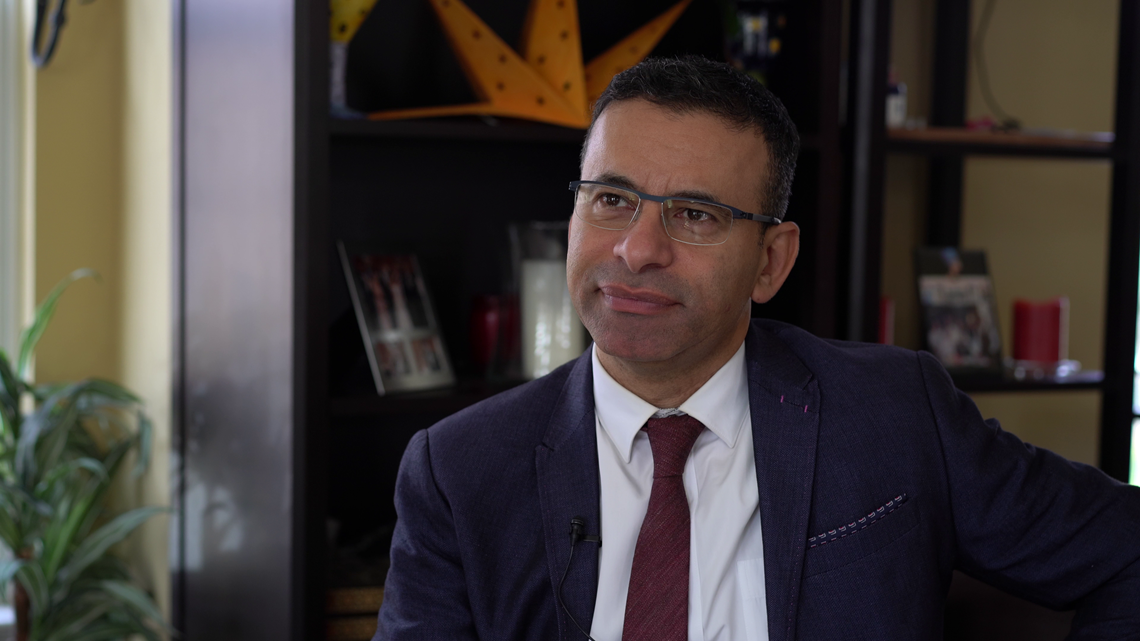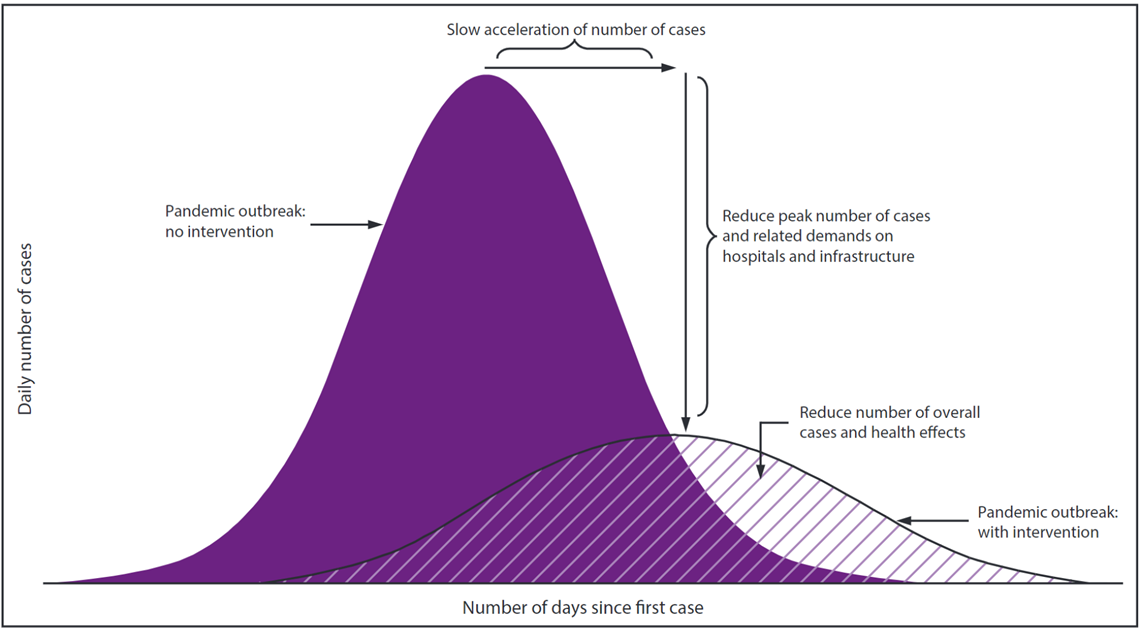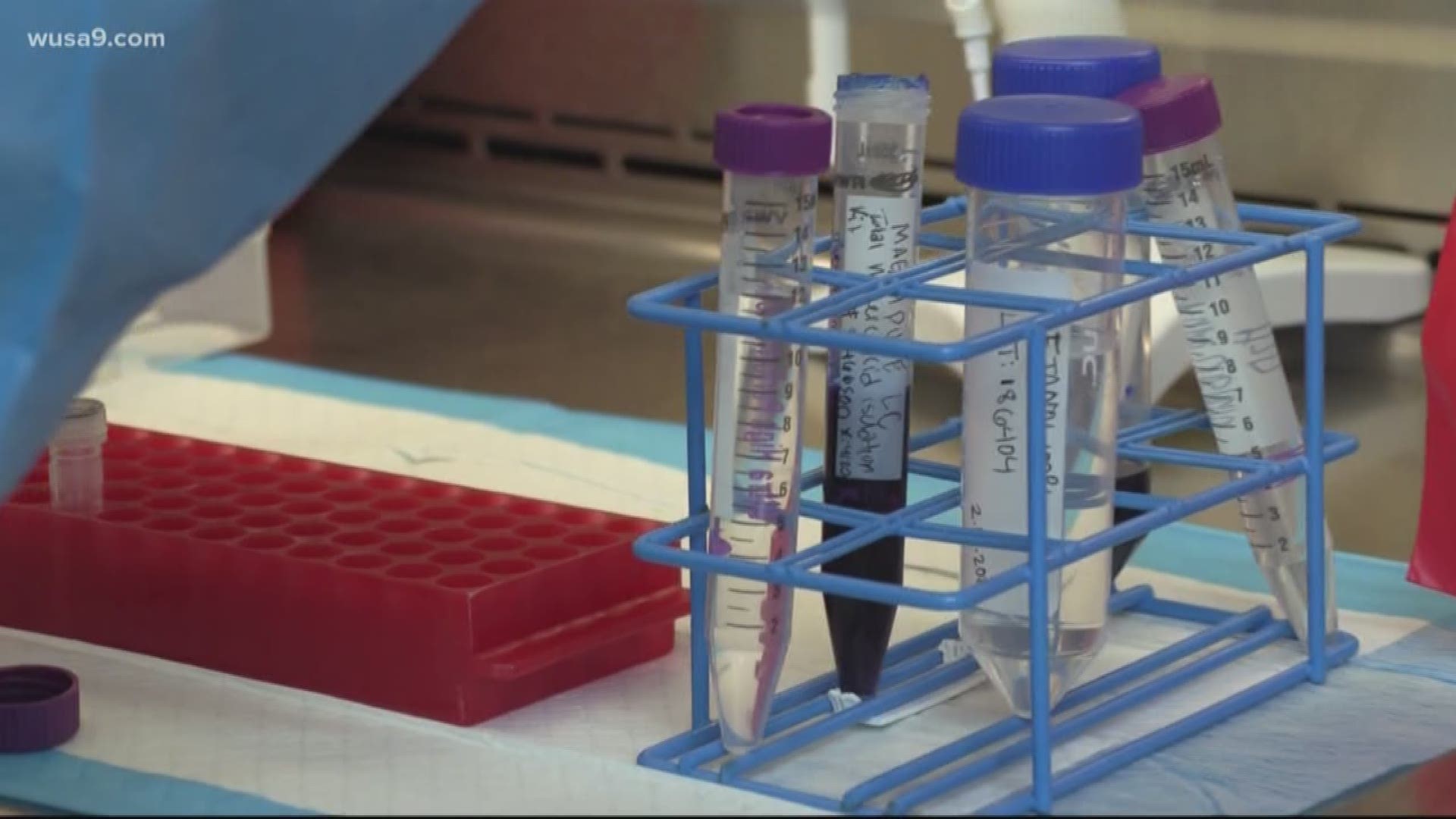ALEXANDRIA, Va. — It's been a little over a week since coronavirus was first confirmed in the DMV. Since then, the President has declared a national emergency and banned travel to most European countries, public schools in the region closed down and the NBA and NHL have canceled their seasons.
"We should plan to hunker down, or at least be prepared to be on a social distancing protocol for another two and a half months," Dr. Marty Makary said.
Makary is a surgeon and professor of health policy at Johns Hopkins. He's worked with the World Health Organization and is a member of the National Academy of Medicine.
Makary's early warnings are now mirrored by doctors in charge of the national pandemic response, including Dr. Anthony Fauci.


"There are roughly 50,000 to 250,000 Americans who are currently infected," Makary said. "For every one case that’s confirmed by testing, there are probably 25 to 50 cases out there that are potentially silent transmitters."
The CDC outlines the most vulnerable members of our community at risk, who Makary said communities need to take extra precautions to protect.
"We’re talking about seniors, those with an organ transplant, with immune conditions, with lung disease, those getting chemotherapy. We have got to behave properly to protect them," he said. "If you look at somebody with preexisting lung disease or somebody who’s over age 80, those folks may have a case fatality rate over 10%. I don’t think if there was a swimming pool with a shark in it and if somebody said, 'there’s a 10% chance you can die from swimming in that pool, that we’d say, you know what, I'm just going to go in and roll the dice.'"
Makary added that this is the worst public health crisis in the U.S. since polio.
"I’m really concerned when I hear parents out there talk about activities that they have planned weeks out," he added. "Many of us in public health have been warning for two months now about this pandemic and what we need to do to prepare. For the most part, we have been blown off, written off as alarmist, and now we’re seeing this entire playbook get carried out just as it is in Italy."
Public health experts' current concerns include the possibility of a hospital bed shortage.
"In the United States, we have about 100,000 ICU beds," Makary said. "This pandemic will deliver between 200,000 and 2.9 million critical care patients spread out over the course of a couple of months. We’re not ready for that. People need to realize that what is happening in Italy, will happen in the United States, short of some miracle. I’d love to be wrong."


Makary was optimistic that the worst of it would be calming down in a few months.
"The good news is this pandemic will end by early summer," he said. "And it’s relatively sparing for children and hard for it to hurt healthy people."

